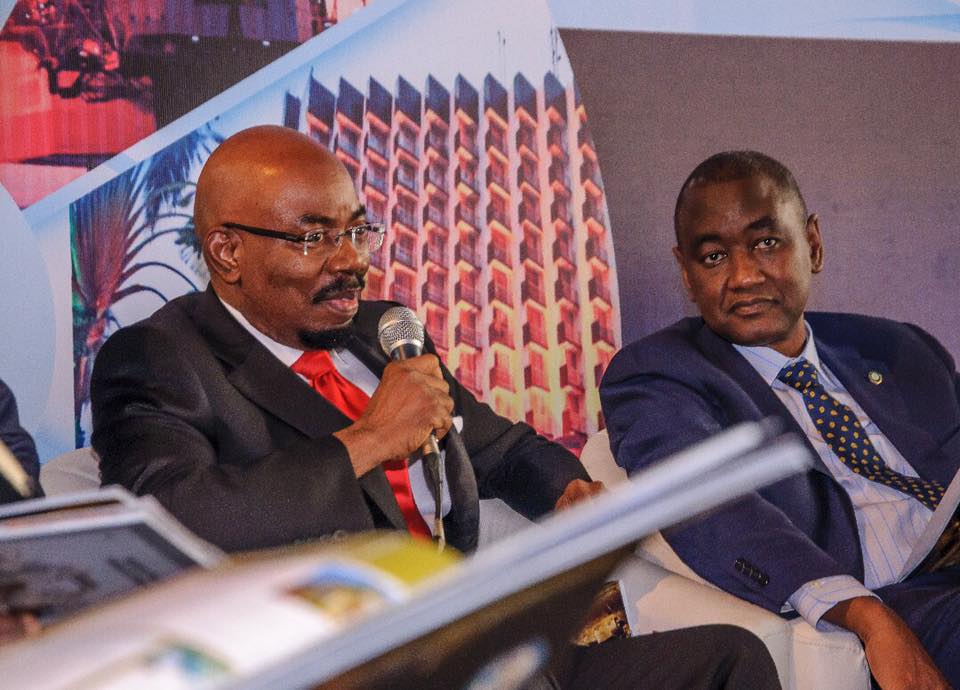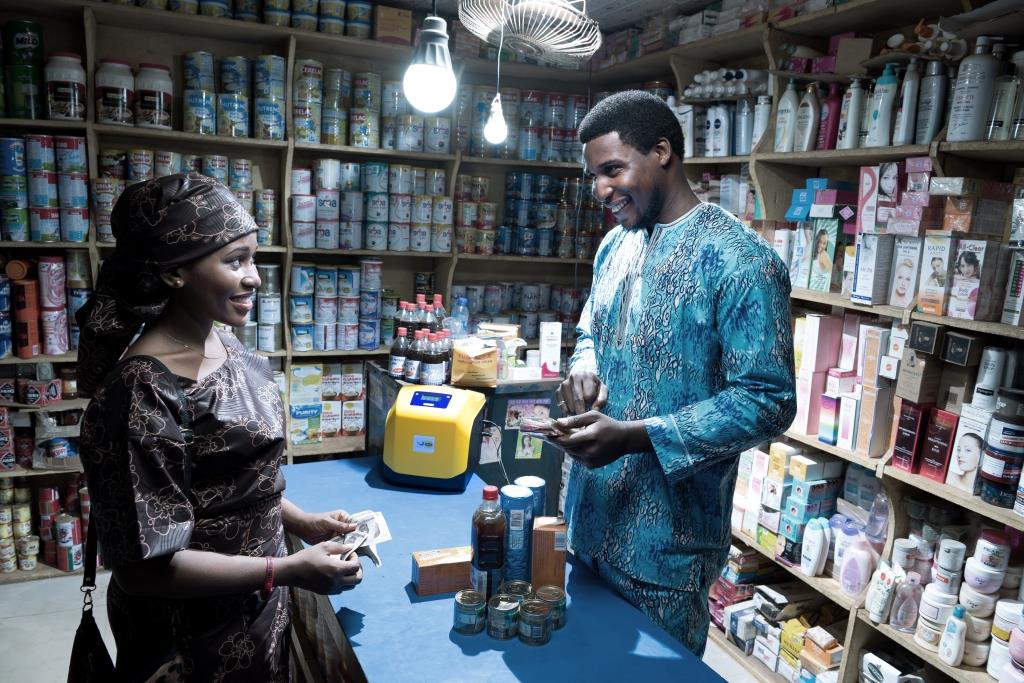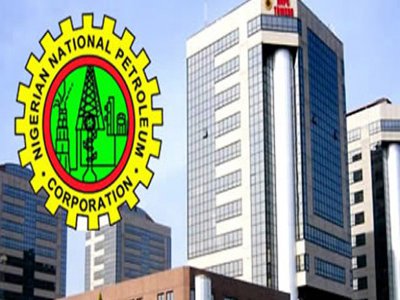Economy
Business, Consumer Expectations Improve in Nigeria
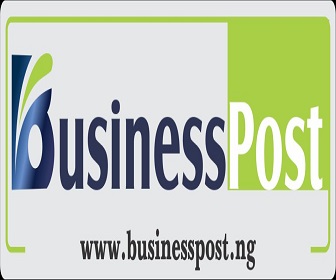
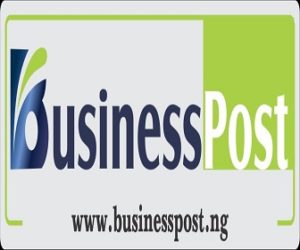
By FSDH Research
The Business Expectations Survey (BES) and the Consumer Expectations Survey (CES) Reports that the Central Bank of Nigeria (CBN) published for Q2, 2017 show that confidence of both the firms and consumers about the Q3, 2017 and the next 12 months has improved.
The BES shows that the respondents’ overall confidence index on the macro-economy in Q2, 2017 was less pessimistic when compared with the level recorded in Q1, 2016.
The major drivers of the improved optimism in Q2, 2017 were services, wholesale/retail trade, industrial and construction sectors. The respondent firms identified the following as major business constraints: insufficient power supply, financial problem, high interest rate, unfavourable economic climate, competition, unclear economic laws, and unfavourable political climate.
Most of the surveyed firms expect the value of the Naira to appreciate against the US Dollar in the next two quarters. The report also shows that businesses with expansion plans are in the following sectors: wholesale/retail trade, services, construction and industrial.
The BES added that respondent firms expect inflation rate and interest rate to moderate in the next two quarters.
The CES shows that the respondents’ overall confidence outlook moderated in Q2, 2017.
According to the survey, some respondents attributed the improved outlook to the increased confidence in the economy. Despite the improved confidence the overall outlook was negative, majority of the respondents ascribed this development to a decline in their net income leading to draw-down on savings/getting into debt.
The consumer outlook for the next quarter and that of the next 12 months were positive. The outlook is attributed to the anticipated improvement in the Nigerian economic conditions, expected increase in net household income and expectation to save in the next 12 months.
On the expectation of consumer expenditure, the survey says more households across the country expect some increase in their expenditure on basic commodities and services in the next 12 months. Most consumers expect to spend a substantial amount of their income on food and other household needs, education, savings, purchase of consumer durables, medical expenses and investment.
Nevertheless, they do not plan to spend on large ticket items such as purchase of car/motor vehicle and house.
Most surveyed consumers expect the prices of goods and services to increase in the next 12 months. The major drivers are: house rent, education, medical care, transport and electricity. On the consumer buying outlook, consumers believe Q2, 2017 was not the ideal time to buy consumer durables like motor vehicle and house.
It also added that the next 12 months are not the best time to buy items such as furniture, gas cooker, refrigerator, air conditioners, television and other durables. However the next 12 months seem to be an ideal time to buy big-ticket items like motor vehicles and house.
Although consumers expect inflation rate to rise in the next 12 months, they expect exchange rate to appreciate and interest rate (borrowing rate) to drop.
We note that there are still some challenges in the economy that need to be addressed.
However, our review of the Nigerian economy shows that the worst performance may be over. Thus the economy is ready for a recovery. We are of the view that inflation rate will decline for the rest of the year 2017 (but still in double digits).
We also expect the Monetary Policy Committee (MPC) of the CBN to adopt a more accommodating monetary policy stance when there is sustainable stability in the foreign exchange rate and inflation expectation is properly anchored within the level that is not growth retarding. Such a change in the monetary policy stance will lead to a drop in the interest rates (both deposit and lending) and yields on the fixed income securities.
The Federal Government of Nigeria (FGN) needs to address the challenges in the power sector in order to reduce firms’ operating cost and increase the spendable and investible income of consumers. Other areas that need attention in order to improve business and consumer confidence are the political and policy uncertainties in the country.
Economy
Champion Breweries Concludes Bullet Brand Portfolio Acquisition

By Aduragbemi Omiyale
The acquisition of the Bullet brand portfolio from Sun Mark has been completed by Champion Breweries Plc, a statement from the company confirms.
This marks a transformative milestone in the organisation’s strategic expansion into a diversified, pan-African beverage platform.
With this development, Champion Breweries now owns the Bullet brand assets, trademarks, formulations, and commercial rights globally through an asset carve-out structure.
The assets are held in a newly incorporated entity in the Netherlands, in which Champion Breweries holds a majority interest, while Vinar N.V., the majority shareholder of Sun Mark, retains a minority stake.
Bullet products are currently distributed in 14 African markets, positioning Champion Breweries to scale beyond Nigeria in the high-growth ready-to-drink (RTD) alcoholic and energy drink segments.
This expansion significantly broadens the brewer’s addressable market and strengthens its revenue base with an established, profitable portfolio that already enjoys strong brand recognition and consumer loyalty across multiple markets.
“The successful completion of our public equity raises, together with the formal close of the Bullet acquisition, marks a defining moment for Champion Breweries.
“The support we received from both existing shareholders and new investors reflects strong confidence in our long-term strategy to build a diversified, high-growth beverage platform with pan-African scale.
“Our focus now is on disciplined execution, integration, and delivering sustained value across markets,” the chairman of Champion Breweries, Mr Imo-Abasi Jacob, stated.
Through this transaction, Champion Breweries is expected to achieve enhanced foreign exchange earnings, expanded distribution leverage across African markets, integrated supply chain efficiencies, portfolio diversification into high‑growth consumer beverage categories, and strengthened presence in the RTD and energy drink segments.
The acquisition accelerates Champion Breweries’ transition from a regional brewing business to a multi-category consumer platform with continental reach.
Bullet Black is Nigeria’s leading ready-to-drink alcoholic beverage, while Bullet Blue has built a strong presence in the energy drink category across several African markets.
Economy
M-KOPA Nigeria Plans Expansion to Edo, Others After N231bn Credit Milestone

By Adedapo Adesanya
Emerging market fintech firm, M-KOPA, has announced plans to deepen its reach in Nigeria to the South South and South East regions, starting with Edo this year, after providing N231 billion in credit to over 1 million customers in the country.
The firm released its first Nigeria-focused Impact Report, which showed that Nigeria is M-KOPA’s fastest-growing market and fastest to reach the milestone.
Since its foray into the Nigerian market in 2019, M-KOPA has been working to dismantle barriers to financial inclusion by providing flexible smartphone financing and digital financial tools that align with how people in the informal economy earn and manage their money.
It operates in six states in the country, including Lagos, Ogun, and Oyo, among others.
The report highlights the company’s contribution to income generation, digital inclusion and economic opportunity for Every Day Earners across the country.
The report showed that M-KOPA has enabled 290,000 first-time smartphone users, while 56 per cent of agents accessed their first income opportunity through the platform.
It showed high income and livelihood gains among its users, with about 77 per cent of customers leveraging smartphones or digital loans obtained through the platform to generate income, indicating that access to financed devices is directly supporting micro-entrepreneurial activity and informal sector productivity.
Furthermore, 75 per cent of users report higher earnings since gaining access to M-KOPA’s services, suggesting measurable improvements in personal revenue streams. On the distribution side, 99 per cent of agents disclose increased earnings, reflecting positive spillover effects across the company’s value chain.
In addition, 81 per cent of long-term customers state that their household expenses have improved, pointing to enhanced financial stability and better consumption smoothing over time.
Speaking on the report, Mr Babajide Duroshola, General Manager, M-KOPA Nigeria, said, “Nigeria represents extraordinary potential, and we’re proud that it has become M-KOPA’s fastest-growing market. Our Impact Report shows that when Every Day Earners gain access to the right digital and financial tools, they use them to create stability and long-term progress for their families. This is about access that unlocks opportunity and sustained prosperity.”
On its expansion plans Nigeria-wide, the M-KOPA helmsman said, “Many of the states we are considering are already similar to the ones we are currently in proximity… So, there is proximity and similarity between these states, and that’s what we are going to do, starting with Edo.”
He noted that as M-KOPA Nigeria continues to expand, the focus remains on ensuring more everyday earners gain access to the digital and financial tools they need to build resilient, prosperous futures in Nigeria’s rapidly digitising economy.
Economy
Tinubu Okays Extension of Ban on Raw Shea Nut Export by One Year

By Aduragbemi Omiyale
The ban on the export of raw shea nuts from Nigeria has been extended by one year by President Bola Tinubu.
A statement from the Special Adviser to the President on Information and Strategy, Mr Bayo Onanuga, on Wednesday disclosed that the ban is now till February 25, 2027.
It was emphasised that this decision underscores the administration’s commitment to advancing industrial development, strengthening domestic value addition, and supporting the objectives of the Renewed Hope Agenda.
The ban aims to deepen processing capacity within Nigeria, enhance livelihoods in shea-producing communities, and promote the growth of Nigerian exports anchored on value-added products, the statement noted.
To further these objectives, President Tinubu has authorised the two Ministers of the Federal Ministry of Industry, Trade and Investment, and the Presidential Food Security Coordination Unit (PFSCU), to coordinate the implementation of a unified, evidence-based national framework that aligns industrialisation, trade, and investment priorities across the shea nut value chain.
He also approved the adoption of an export framework established by the Nigerian Commodity Exchange (NCX) and the withdrawal of all waivers allowing the direct export of raw shea nuts.
The President directed that any excess supply of raw shea nuts should be exported exclusively through the NCX framework, in accordance with the approved guidelines.
Additionally, he directed the Federal Ministry of Finance to provide access to a dedicated NESS Support Window to enable the Federal Ministry of Industry, Trade and Investment to pilot a Livelihood Finance Mechanism to strengthen production and processing capacity.
Shea nuts, the oil-rich fruits from the shea tree common in the Savanna belt of Nigeria, are the raw material for shea butter, renowned for its moisturising, anti-inflammatory, and antioxidant properties. The extracted butter is a principal ingredient in cosmetics for skin and hair, as well as in edible cooking oil. The Federal Government encourages processing shea nuts into butter locally, as butter fetches between 10 and 20 times the price of the raw nuts.
The federal government said it remains committed to policies that promote inclusive growth, local manufacturing and position Nigeria as a competitive participant in global agricultural value chains.
-

 Feature/OPED6 years ago
Feature/OPED6 years agoDavos was Different this year
-
Travel/Tourism10 years ago
Lagos Seals Western Lodge Hotel In Ikorodu
-

 Showbiz3 years ago
Showbiz3 years agoEstranged Lover Releases Videos of Empress Njamah Bathing
-

 Banking8 years ago
Banking8 years agoSort Codes of GTBank Branches in Nigeria
-

 Economy3 years ago
Economy3 years agoSubsidy Removal: CNG at N130 Per Litre Cheaper Than Petrol—IPMAN
-

 Banking3 years ago
Banking3 years agoSort Codes of UBA Branches in Nigeria
-

 Banking3 years ago
Banking3 years agoFirst Bank Announces Planned Downtime
-

 Sports3 years ago
Sports3 years agoHighest Paid Nigerian Footballer – How Much Do Nigerian Footballers Earn







